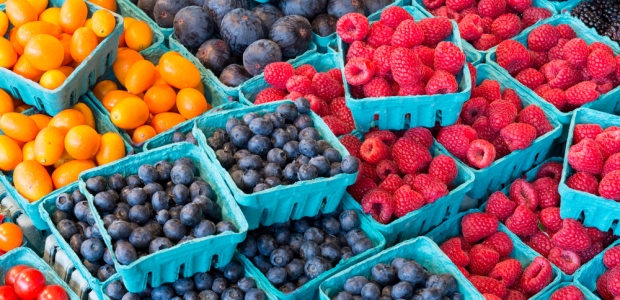
FDA Finalizes More Food Safety Rules
"The rules will help better protect consumers from foodborne illness and strengthen their confidence that modern preventive practices are in place, no matter where in the world the food is produced," said Michael R. Taylor, FDA's deputy commissioner for foods and veterinary medicine.
The U.S. Food and Drug Administration on Nov. 13 finalized more rules to implement the Food Safety Modernization Act (FSMA). The Produce Safety rule establishes for the first time enforceable safety standards for produce farms and holds importers accountable for verifying that imported food meets U.S. safety standards. The Accredited Third-Party Certification rule creates a program for the accreditation of third-party certification auditors to conduct food safety audits of foreign food facilities.
About estimated 48 million Americans become sick each year from foodborne diseases, according to recent CDC data cited by FDA. Of those, approximately 128,000 are hospitalized and 3,000 die each year.
The act was passed in 2011 and directs FDA and food producers to prevent problems across the entire food system, rather than waiting to act until illness occurs. "The recent multistate outbreak of Salmonella in imported cucumbers that has killed four Americans, hospitalized 157, and sickened hundreds more is exactly the kind of outbreak these rules can help prevent," said Michael R. Taylor, FDA's deputy commissioner for foods and veterinary medicine. "The FDA is working with partners across the government and industry to prevent foodborne outbreaks. The rules will help better protect consumers from foodborne illness and strengthen their confidence that modern preventive practices are in place, no matter where in the world the food is produced."
FDA said public comments and input received during hundreds of farm visits, meetings, and listening sessions shaped the Produce Safety rule so that it reduces the risk of harmful contamination while allowing appropriate flexibility for farmers and producers. As for foreign supplier verification, the USDA estimated two years ago that imported food accounted for about 19 percent of the U.S. food supply, including about 52 percent of fresh fruits and 22 percent of fresh vegetables consumed by Americans. This final rule ensures that importers conduct verification activities (such as facility audits, sampling and testing of food, or a review of the supplier's relevant food safety records) based on risks linked to the imported food and the performance of the foreign supplier.
The Accredited Third-Party Certification rule allows FDA to require in specific circumstances that a food offered for import be accompanied by a certification from an accredited third-party certification body.
"The ultimate success of FSMA depends on full funding of the president's FY 2016 budget request," Taylor said. "This will help us train FDA and state food safety staff on the new system, fund our state partners to work with farmers on produce safety, provide technical assistance to small farms and food businesses, and successfully implement the new import system that U.S. consumers deserve and Congress envisioned."
So far, FDA has finalized five of the seven major rules that implement the core of FSMA.